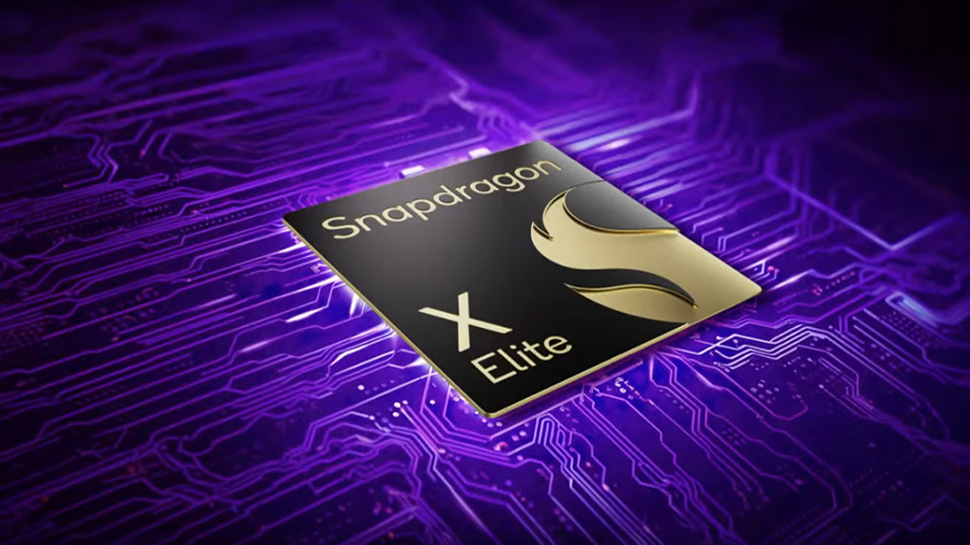Snapdragon X Elite may have landed on Windows, but most VPN apps still aren't ready
ARM support on Windows VPN is still largely lacking

The long-awaited Snapdragon X Elite chip has well and truly landed on Windows devices. This is great for performances as ARM PCs are expected to be way faster than their predecessors.
There's a caveat, though. Many services still don't offer ARM-native applications. This is bad news for all the privacy-conscious users out there as these include most of the best VPN apps on the market.
To understand how the industry is catching up with this latest innovation, TechRadar contacted a number of VPN providers to see what issue is causing this lack of compatibility, and what virtual private networks (VPNs) are doing to tackle this.
The issue with Snapdragon VPN support
Snapdragon X Elite is Qualcomm's high-performance ARM-based processor that challenges the market dominance of Intel and AMD while promising to deliver better battery life and super-fast performances. Its dedicated Neural Processing Unit (NPU), in fact, can handle up to 45 trillion operations per second.
This is surely an exciting time for Windows users, considering that Apple first revealed its ARM-based M1 processor back in 2020. Increasingly more applications are joining the list of apps that can run on the Qualcomm Snapdragon X Elite, too. Yet, ARM Windows devices still have strong limitations when it comes to VPN compatibility.
"Emulation doesn't fare well when software is specialist or integrates deeply with the operating system. And such software tends to use not just the VPN software itself but also the custom drivers," Peter Membrey, Chief Engineering Officer at ExpressVPN told TechRadar.
What's being done to fix the issue?
Installing your VPN on a router could be an easy way to work around this issue and enjoy VPN protection on your ARM Windows device even though your chosen provider doesn't offer a compatible application. Check out our dedicated guide to learn how to do it.
Membrey suggested that the solution to fix this issue is to rebuild everything natively for ARM. "This means no emulation layer is needed, and things will run smoothly as expected," he added.
Building ARM-native applications is exactly what most providers are actively doing right now, including TechRadar's top-ranked service, NordVPN.
Private Internet Access (PIA), for instance, should be ready to launch a beta version in the coming weeks. Commenting on this point, Himmat Bains, Head of Product at PIA, told TechRadar: "PIA has been working closely with Microsoft’s product team to get this unblocked, and we are now in the final testing stages for our ARM alpha."
Proton VPN is also expected to release a solution in the coming weeks that should also benefit ARM users. While already offering ARM support on both macOS and Linux, Mullvad VPN confirmed TechRadar that an ARM-native app for Windows is also being worked on. "It's not a high priority but it's something we're taking some time here and there to get done," said Jan Jonsson, CEO at Mullvad.
What can you do now?
Right now, we can't put an exact timeline on when providers will be able to offer ARM-native apps or even ARM support in some instances. Currently, Windscribe and Surfshark are two big names that are already able to provide a VPN service for Snapdragon laptops, and more names are expected to be added to this list in the coming weeks.
In the meantime, if you're looking to secure your online activity, you can choose to either set up a router VPN, which secures all traffic going through your home internet connection, or, if you are yet to purchase a Snapdragon laptop but were considering it, you can still look to get one of the best VPNs on a Windows PC that doesn't use this latest infrastructure.
We test and review VPN services in the context of legal recreational uses. For example:
1. Accessing a service from another country (subject to the terms and conditions of that service).
2. Protecting your online security and strengthening your online privacy when abroad.
We do not support or condone the illegal or malicious use of VPN services. Consuming pirated content that is paid-for is neither endorsed nor approved by Future Publishing.

Chiara is a multimedia journalist committed to covering stories to help promote the rights and denounce the abuses of the digital side of life – wherever cybersecurity, markets, and politics tangle up. She believes an open, uncensored, and private internet is a basic human need and wants to use her knowledge of VPNs to help readers take back control. She writes news, interviews, and analysis on data privacy, online censorship, digital rights, tech policies, and security software, with a special focus on VPNs, for TechRadar and TechRadar Pro. Got a story, tip-off, or something tech-interesting to say? Reach out to chiara.castro@futurenet.com